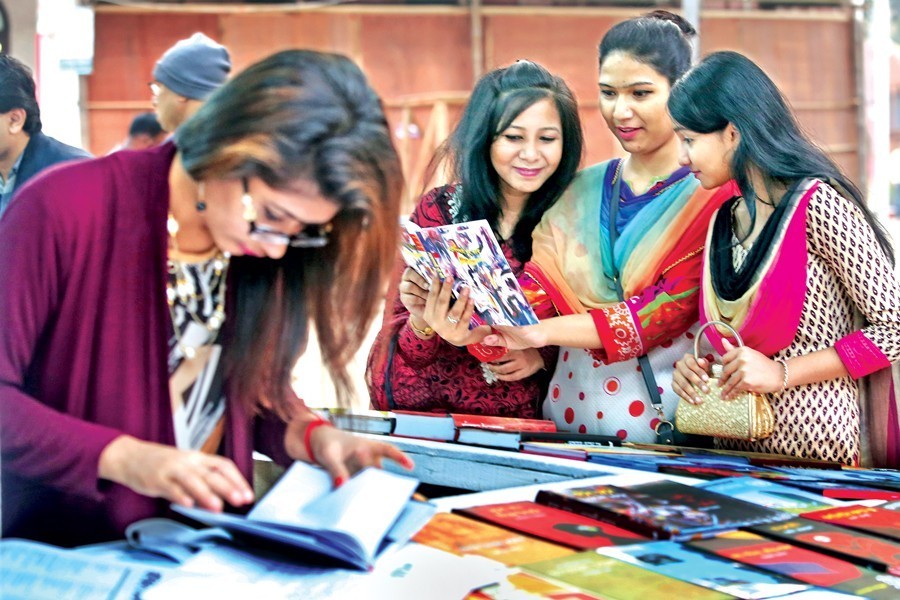
Published :
Updated :

Bangladesh has the unique distinction of turning the sacrifice made by language martyrs into a cultural commemoration where the pre-eminent focus is on language and traditional culture. The uniqueness of the celebration is best expressed through the month-long book fair dedicated to the language movement. What began as a lone publisher's (Muktadhara-famed Chittaranjan Saha) modest attempt to display books on the occasion of Ekushey on the Bangla Academy premise has now flourished into a book fair of immense size and stature. Nothing could be a more fitting tribute to the memory of language martyrs and transforming the sombre environ into a celebration of indomitable Bangalee spirit. Quite appropriately, the spirit was a guiding force behind the independence struggle and the limitless sacrifice during the Liberation War. The Ekushey Book Fair has thus contributed to the crystallising of the Bangalee spirit in more ways than one. Books published and spread among readers continued to be the barometer of the nation's love for books.
In post-independent Bangladesh, the sombre atmosphere and sanctity have time and again been undermined by forces inimical to the culture of Bangaleeness. But still the book fair's range and scope in spatial terms continued to grow. The Bangla Academy premise has proved too small to accommodate the increasing number of book stalls. The publishing industry, somewhat contrary to popular belief, has been witnessing a mushrooming growth. When scholars and the intelligentsia express their frustration over the young generation's distraction from books and addiction to electronic gadgets such as smartphones, tablets, desktop computers and laptops, the proliferation of publishing houses and their growing presence at the Ekushey Book Fair is a vindication of the transcending appeal of Ekushey February. Boi Mela opens window of opportunity on three interconnected and mutually reinforcing levels: First, it provides an impetus to the publication industry in the shape of an annual spurt in book publication; second, it gives old and upcoming writers an avenue for getting published; and third, in the process, language, literature and culture receive a boost. But commercial consideration is one of the prime motives behind the flourish with which books are brought out by the publishers. In this context, it is important that fiscal incentives be given to the publication business as an industry. It is only in such an ideal condition that upcoming and potentially talented writers would be sought out and their works published by the publication houses instead of their financing their books in anyway.
If more books see the light of day on the occasion of the book fair at Bangla Academy and in the neighbouring Suhrawardy Udyan where it has sprawled, the proliferation of writers too is axiomatic. Simple arithmetic would naturally make one believe that readers are also buying books in an increasing number. No doubt, writers are growing in number and more books are also getting published. But there is dearth of works of the stature of Akhteruzzaman Elius' and Syed Waliullah's novels.
There are a handful of popular writers including the most popular but now deceased Humayun Ahmed whose books used to sell like hot cakes. These are mostly fictions written for the young generation. True, credit goes to them for making young boys and girls keenly interested in books and developing their reading habits.


 For all latest news, follow The Financial Express Google News channel.
For all latest news, follow The Financial Express Google News channel.